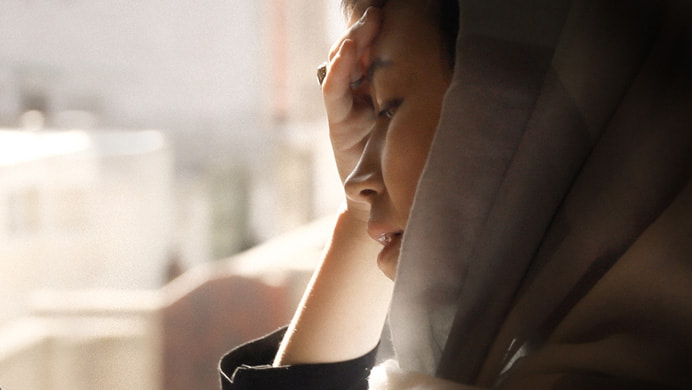Unveiling Afghan Women’s Resistance Through Personal Footage
In her poignant documentary Bread & Roses, filmmaker Sahra Mani presents a compelling chronicle of Afghan women’s defiance against the Taliban’s oppressive gender apartheid, captured through personal cell phone footage. These powerful images shed light on a courageous resistance that remains largely unnoticed by the global community.
In the summer of 2021, amid a routine visit to a film festival in Europe, Afghan filmmaker Sahra Mani found her life irrevocably altered when Kabul fell to the Taliban. This trip marked the aftermath of her acclaimed documentary, A Thousand Girls Like Me, created three years prior.
That earlier film portrayed the struggle of a brave Afghan woman who confronted her father about years of sexual abuse, becoming a symbol of resilience and demanding justice for the sake of her children. “It was a shocking topic in Afghanistan,” Mani recounted, emphasizing the impact of her work even amid attempts to silence it. “The film became a source of pride, showing that Afghan women could produce work that challenges oppressive regimes.”
While Mani had once thrived in an increasingly progressive Afghanistan, the Taliban’s resurgence radically shifted the landscape, rendering her a target due to her visibility as a filmmaker. Upon receiving video footage from women enduring Taliban rule, Mani discovered a lifeline back to her homeland, birthing the creation of Bread & Roses, now streaming on Apple TV+.
The heart of this film stems from the bravery of young women who document their daily lives under Taliban oppression. These videos reveal not just the grim reality of protests—where demonstrators are met with tear gas and violence—but also candid moments within their homes, where they share laughter and intimate acts of defiance, such as teaching girls to read.
“Resistance and hope are vital for Afghan women,” Mani asserts. “Their only path forward is to actively fight back.” The footage she compiled serves as documentation of a painful history and as a call to action for global audiences.
Among the portraits of women featured, Taranom stands out for her bold rejection of conventional dress, favoring distinctive caps and living independently in Kabul. Her pursuit of social justice for street children starkly contrasts with her harrowing experiences of displacement in Pakistan.
Sharifa, a member of the Hazara community, faced the crushing weight of lost opportunities as she was forced to abandon her government job, only to later engage in activism. Zahra, a dentist defying familial norms, ultimately risked her career by leading protests against the Taliban’s policies, showcasing the stark realities faced by Afghan women today.
Within the film, poignant moments emerge, such as gatherings in Zahra’s clinic where women strategize and prepare demands for education, work, and fundamental freedoms. Another arresting scene captures an activist defiantly challenging her Taliban captors while documenting the encounter on her phone, exemplifying the blend of bravery and daily resistance.
Through these personal accounts, Bread & Roses captures the duality of life under Taliban rule, presenting both the vibrancy of human connection and the brutal repressions faced by women. Mani understands that the film can only illustrate a fraction of the wider atrocities affecting so many, revealing harrowing stories of disappearances and violence against those who dare to resist.
With the support of figures like Malala Yousafzai as an executive producer, Mani’s mission resonates beyond the screen. She hopes the film encourages international advocacy for Afghan women’s rights and accountability for the Taliban. “Women activists are tirelessly advocating for recognition of gender apartheid and seeking justice for the crimes committed against Afghan women,” Mani states.
The Taliban’s oppressive regulations extend far beyond simple restrictions—they encompass a systematic and dangerous campaign to erase women’s rights and identities. Under their regime, Afghan women face a myriad of oppressive rules that govern almost every aspect of their lives, reinforcing a culture of fear and control.
As we move forward, the fight for freedom, dignity, and basic rights remains crucial. Mani encapsulates the urgency of this struggle, stating, “The reality women face goes beyond education and work; it’s about survival in a society actively seeking to suppress them.” This documentary seeks to ensure that the voices of these women are not only heard but that they inspire action for change at an international level.
Support Afghan women in their fight against oppression. Join the campaign to recognize gender apartheid as an international crime.


